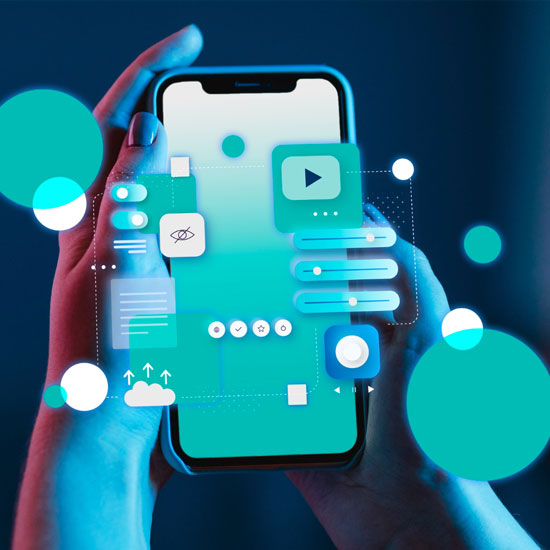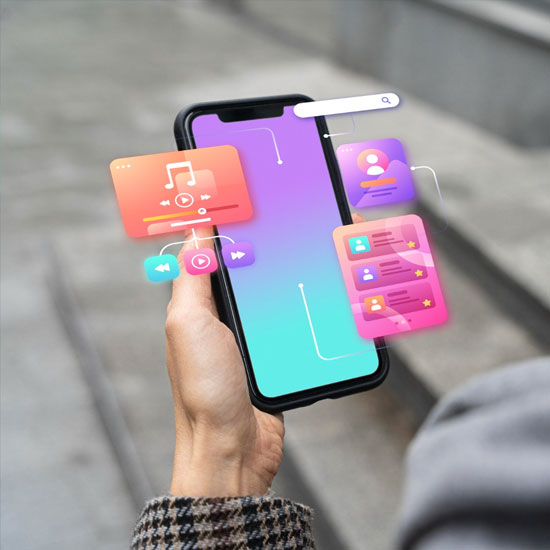Mobile App Development

Mobile App Development refers to the process of designing, creating, and testing applications specifically tailored for mobile devices, such as smartphones and tablets. Mobile apps are essential tools that run on mobile operating systems like iOS (Apple) and Android (Google). Mobile app development involves a variety of programming languages, frameworks, and tools to deliver user-friendly, functional, and engaging applications.
Applications:
- Consumer Apps: Consumer apps cater to individual users and encompass a wide range of categories, including social media, entertainment, e-commerce, gaming, and health and fitness.
- Business Apps: Business apps are designed to improve productivity and streamline operations in organizations. Examples include project management apps, CRM systems, and collaboration tools.
- E-Learning Apps: Educational institutions and online learning platforms use mobile apps for delivering courses, lectures, quizzes, and educational content to students.
- Healthcare Apps: Healthcare apps assist users in monitoring their health, scheduling appointments, tracking medications, and accessing medical information.
- Navigation and Mapping Apps: GPS and mapping apps help users find directions, locate businesses, and discover points of interest.
- Utilities: Utility apps provide tools for tasks such as weather forecasting, file management, and language translation.
- Finance Apps: Mobile banking apps, payment wallets, and stock trading platforms allow users to manage their finances and conduct transactions.
- Travel and Hospitality Apps: These apps provide booking and reservation services for hotels, flights, and transportation, as well as travel guides and itinerary planners.
Advantages:
- Wider Reach: Mobile apps reach a vast global audience, as billions of people use smartphones and tablets daily.
- Enhanced User Experience: Apps offer a more immersive and responsive user experience compared to mobile websites.
- Offline Access: Some apps provide functionality even when the device is offline, increasing usability in areas with limited connectivity.
- Performance: Apps are optimized for mobile devices, resulting in faster loading times and smoother performance.
- Device Features: Apps can access device features such as the camera, GPS, and sensors, enabling innovative features and functionality.
- Monetization: Developers can monetize apps through various models, including in-app purchases, subscriptions, and advertising.
- Push Notifications: Apps can send push notifications to engage users and provide updates or promotions.
- Brand Presence: Mobile apps enhance brand visibility and engagement, reinforcing customer loyalty.
Mobile App Development is a dynamic field with enormous potential, offering opportunities to businesses, entrepreneurs, and developers to create innovative solutions that meet user needs and enhance digital experiences. Mobile apps have become an integral part of modern life, providing access to information, services, and entertainment on the go.

